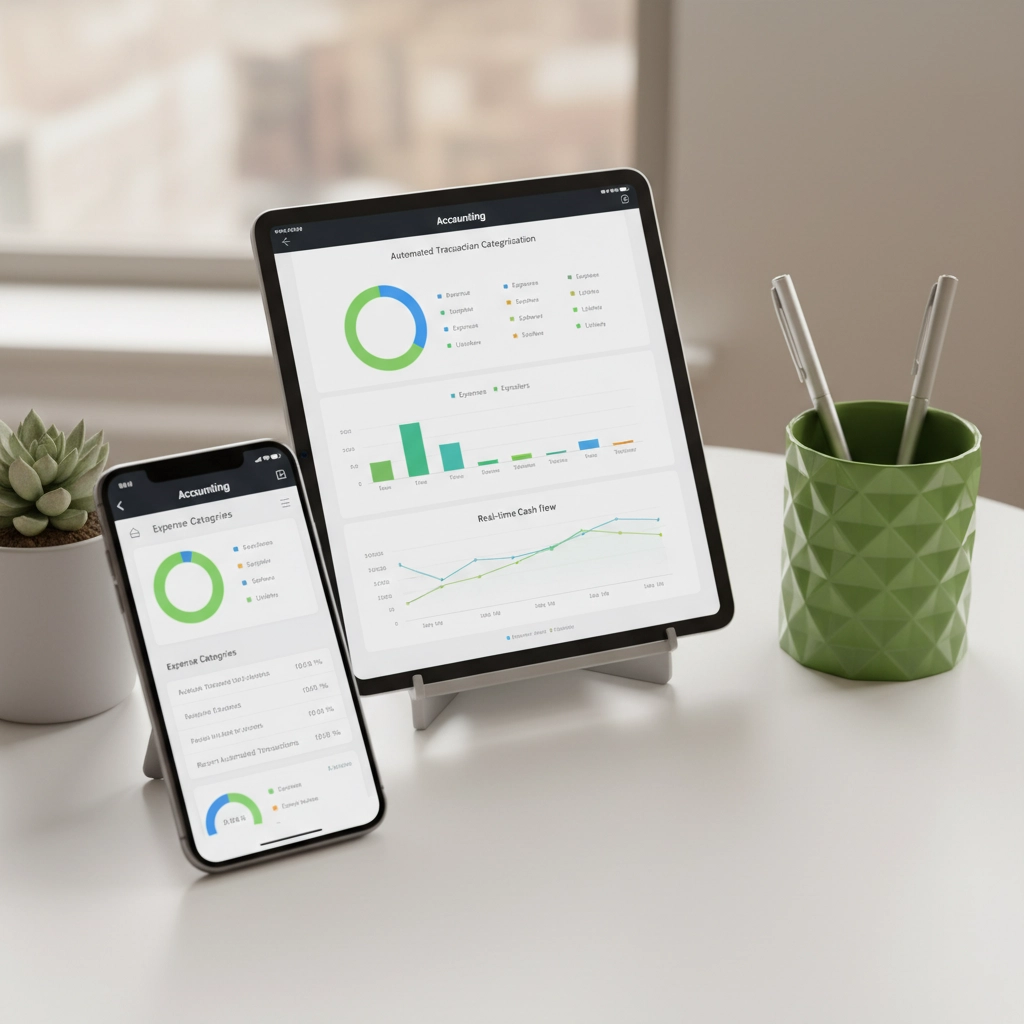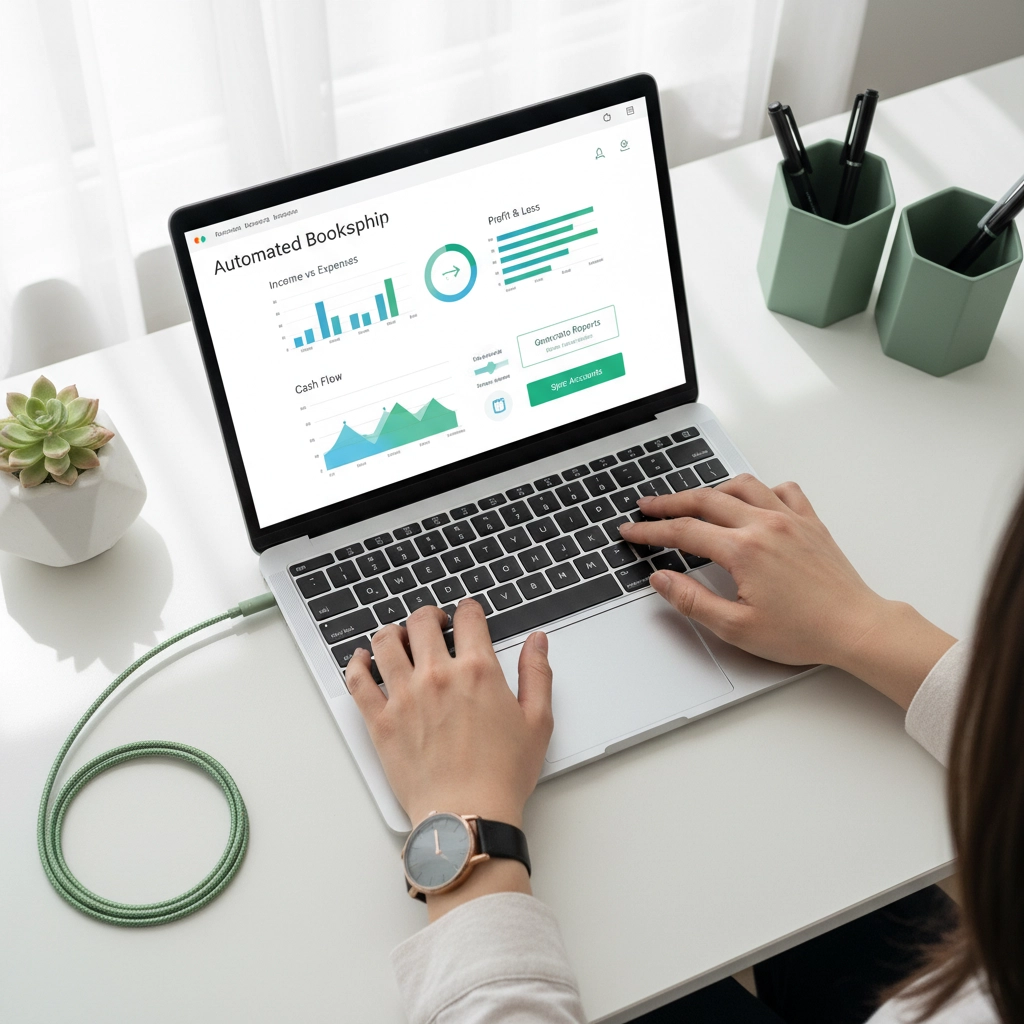
Stop Wasting Time on Your Books: Find the Simpler Way.
Stop Wasting Time on Your Books: Find the Simpler Way.

Are you spending your evenings hunched over spreadsheets instead of planning your next big move? If you're like most small business owners, you probably started your venture to follow a passion or solve a problem: not to become a part-time accountant.
Yet here you are, drowning in receipts, wrestling with QuickBooks, and losing sleep over whether you categorized that office supply purchase correctly. There's got to be a better way, right?
There is. And it doesn't involve becoming a bookkeeping expert overnight.
The Hidden Cost of DIY Bookkeeping
Let's talk numbers for a second. If you're spending 10 hours a week on bookkeeping tasks (and many business owners spend more), that's 520 hours per year. At your hourly rate as a business owner, what's that time really worth?
But the real cost isn't just time: it's opportunity cost. Every hour you spend categorizing expenses is an hour you're not:
Meeting with potential clients
Developing new products or services
Building relationships with customers
Planning strategic growth
Actually running your business

Most business owners fall into the DIY bookkeeping trap because it feels like the "responsible" thing to do. After all, it's your money, your business, your responsibility. But here's the thing: being responsible doesn't mean doing everything yourself.
Why Manual Bookkeeping Feels So Hard
If you've ever felt overwhelmed by your financial records, you're not imagining things. Manual bookkeeping is genuinely challenging, and here's why:
It's repetitive but requires constant attention. You can't just zone out and batch process: every transaction needs to be reviewed, categorized, and entered correctly. One small mistake can throw everything off.
The rules keep changing. Tax codes, regulations, and best practices evolve constantly. What worked last year might not be optimal (or even compliant) this year.
It never feels "done." Unlike completing a project or serving a customer, bookkeeping is an ongoing process. There's always another receipt, another reconciliation, another report to prepare.
The stakes feel high. Make a mistake in marketing, and you might lose a few leads. Make a mistake in bookkeeping, and you could face audits, penalties, or cash flow problems.
No wonder so many business owners feel stressed about their books.
The Automation Revolution
Here's where things get interesting. Technology has transformed bookkeeping in ways that many small business owners haven't fully embraced yet.
Modern bookkeeping automation can:
Import bank transactions automatically
Categorize expenses using AI
Generate reports in real-time
Send you alerts for unusual activity
Prepare tax-ready summaries

The best part? These tools have become incredibly user-friendly. Gone are the days when you needed an accounting degree to set up automated bookkeeping. Most platforms can have you up and running in under an hour.
Think about it: You probably already automate other parts of your business. You might use scheduling software for appointments, automated email sequences for marketing, or inventory management systems. Why should bookkeeping be any different?
When to Call in the Professionals
Automation is powerful, but it's not magic. Sometimes you need a human touch: someone who understands the nuances of small business finance and can provide strategic guidance.
Consider professional help when:
Your business is growing rapidly
You're dealing with complex transactions (multiple revenue streams, inventory, international payments)
You're planning major financial decisions (loans, investments, expansion)
You simply want the peace of mind that comes with expert oversight
Professional bookkeepers don't just handle data entry: they provide insights. They can spot trends in your spending, identify potential tax savings, and help you understand what your numbers really mean for your business.

The Hybrid Approach: Best of Both Worlds
You don't have to choose between doing everything yourself or handing over complete control. Many successful small businesses use a hybrid approach:
Automate the routine stuff. Let technology handle transaction imports, basic categorization, and report generation.
Get professional help for the strategic stuff. Work with a bookkeeper for monthly reviews, quarterly planning, and year-end preparation.
Stay involved in the big picture. You should always understand your numbers, even if you're not crunching them yourself.
This approach gives you the efficiency of automation with the expertise of professional guidance, while keeping you connected to your business finances.
Making the Switch: Practical First Steps
Ready to reclaim your time? Here's how to start:
Audit your current process. Track how much time you're actually spending on bookkeeping tasks for a week. The number might surprise you.
Identify your pain points. What parts of bookkeeping feel most tedious or error-prone? These are prime candidates for automation or professional help.
Start small. You don't need to overhaul everything at once. Maybe begin by automating bank imports or outsourcing monthly reconciliation.
Set a timeline. Give yourself a reasonable deadline to implement changes. Without a timeline, it's easy to keep putting off improvements.

The Freedom to Focus on What Matters
Imagine starting your week knowing that your books are up-to-date, accurate, and compliant: without you having to spend hours making it happen. Picture having real-time insights into your cash flow and profitability, helping you make better business decisions faster.
That's not a fantasy. It's what happens when you stop doing everything yourself and start leveraging the right tools and expertise.
Your business didn't become successful because you're great at data entry. It succeeded because you're great at what you do: whether that's providing services, creating products, or solving problems for your customers.
The sooner you can get back to focusing on those core strengths, the sooner you can take your business to the next level.
Your Next Move
You started your business to build something meaningful, not to become a bookkeeping expert. The good news is you don't have to choose between running your business well and managing your finances properly.
The tools exist. The expertise is available. The only question is: How much longer are you willing to waste time on tasks that could be automated or delegated?
Your future self: the one who's growing a thriving business instead of wrestling with spreadsheets: is waiting for you to make the change.
Ready to simplify your bookkeeping? Explore how we can help you reclaim your time and focus on what really matters in your business.
